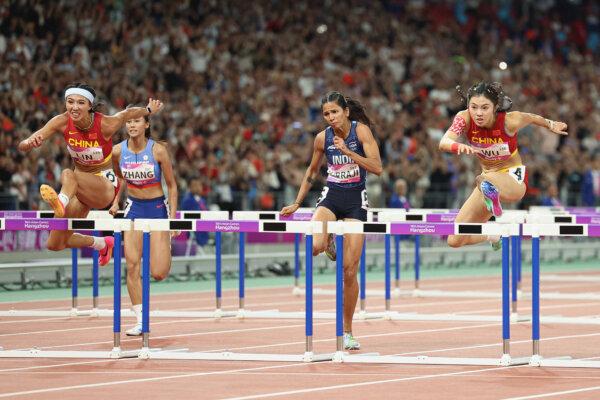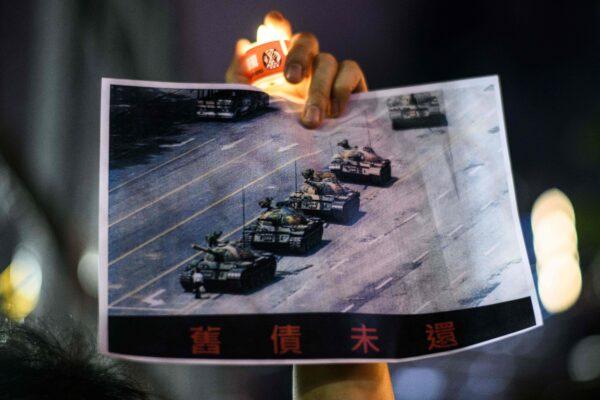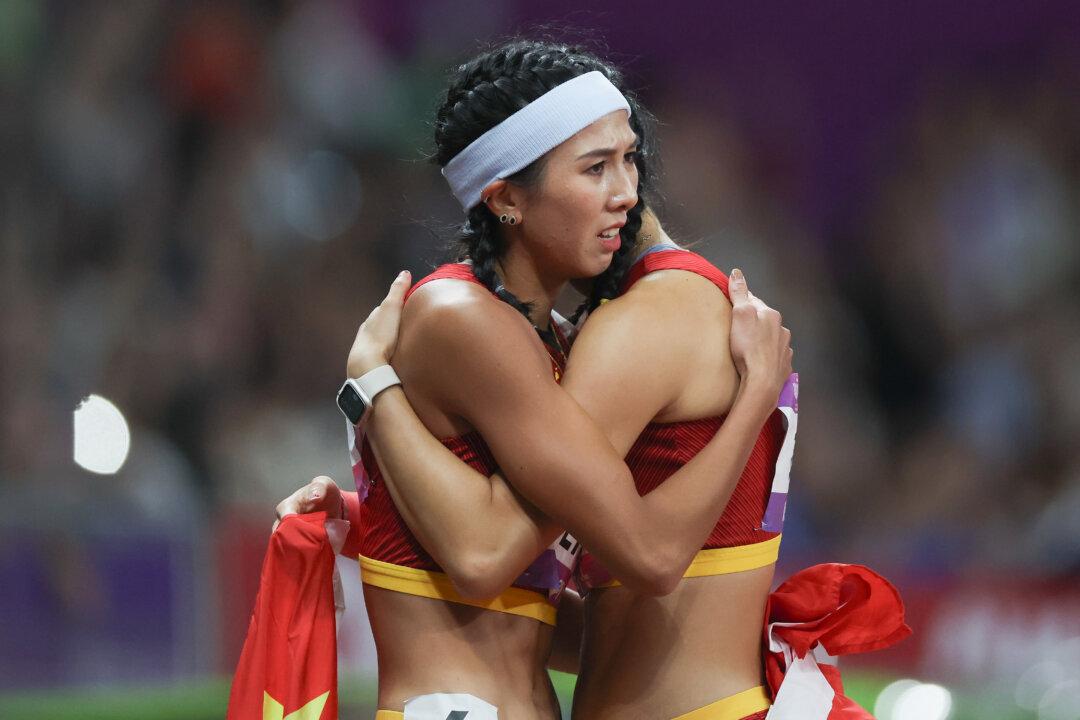A photo of two Chinese athletes embracing after finishing their race at the Asian Games has been censored in China. The race numbers assigned to the women unintentionally created an allusion to the 1989 Tiananmen Square massacre.
After completing the race in the women’s 100m hurdles final at the Asian Games in Hangzhou on Oct. 1, Lin Yuwei and Wu Yanni hugged each other. The photo captured the moment when Lin’s lane number, 6, was right next to Wu’s lane number, 4, as both athletes embraced.
Lin won the gold medal with a running time of 12.74 seconds, while Wu finished second but was not awarded the silver medal as she was disqualified for a false start.
Number combinations, such as 6-4, 64, 63+1, 65-1, and other search terms that could refer to June 4, 1989, have been censored on Chinese social media. Authorities have restricted information about the incident, blocked websites and social media discussions, and enforced strict censorship on related keywords and content.
China’s state-controlled media were initially unaware of the sensitivity of the photo of the women’s embrace, posting it on their official social media platforms and news websites.
China Central Television News (CCTV), the top state broadcaster, first shared the photo on its Weibo account with 132 million followers. Xinhua, another state news agency, published the image in an article about the women’s final race. CCTV News later took down the photo from its Weibo account, and Xinhua removed the original article.
In response to the censorship of the photo, many netizens criticized the Chinese regime. One social media user wrote, “Only those who’ve committed unconscionable acts fear the ghosts of history.” Another called the sporting event “The 1989 Asian Games.”

Heavy Censorship
Last year, during the 33rd anniversary of the Tiananmen Square massacre, one of China’s most popular influencers, Austin Li, with 42 million followers, suffered censorship. Mr. Li’s broadcast was cut short when he presented a cake shaped like a tank, which appeared to have cookies as wheels and a chocolate stick as its gun. He later faced an inter-company probe about the incident.The image commonly referred to as “Tank Man” is one of the most iconic photographs associated with the 1989 Tiananmen Square protests in Beijing. The photograph captures an unidentified Chinese man standing in front of a column of Type 59 tanks leaving the square on June 5, 1989, the day after the Chinese regime’s violent suppression of demonstrators.

The man’s actions have come to symbolize the spirit of peaceful resistance and the desire for political reform that many protesters at Tiananmen Square advocated for.
The protests were a significant moment in Chinese history, as thousands of students, intellectuals, and citizens gathered in the square to call for political reform, freedom of speech, and an end to corruption. The CCP’s response to the protests was a brutal military crackdown, resulting in the loss of many lives and the imposition of strict censorship.
The anniversary of the Tiananmen Square massacre is observed outside China. However, in Hong Kong, an annual candlelight vigil in a downtown park that used to attract tens of thousands has been prohibited since 2020, mainly due to a national security law imposed by Beijing, which cracked down on dissent in the former British territory.
The last time a June 4 vigil was hosted in the city was in 2019, with an estimated 180,000 people attending the event.
In 2020, thousands gathered at Hong Kong’s Victoria Park to mark the anniversary, but authorities arrested multiple activists and later sentenced them to up to 15 months in prison for hosting the vigil.






